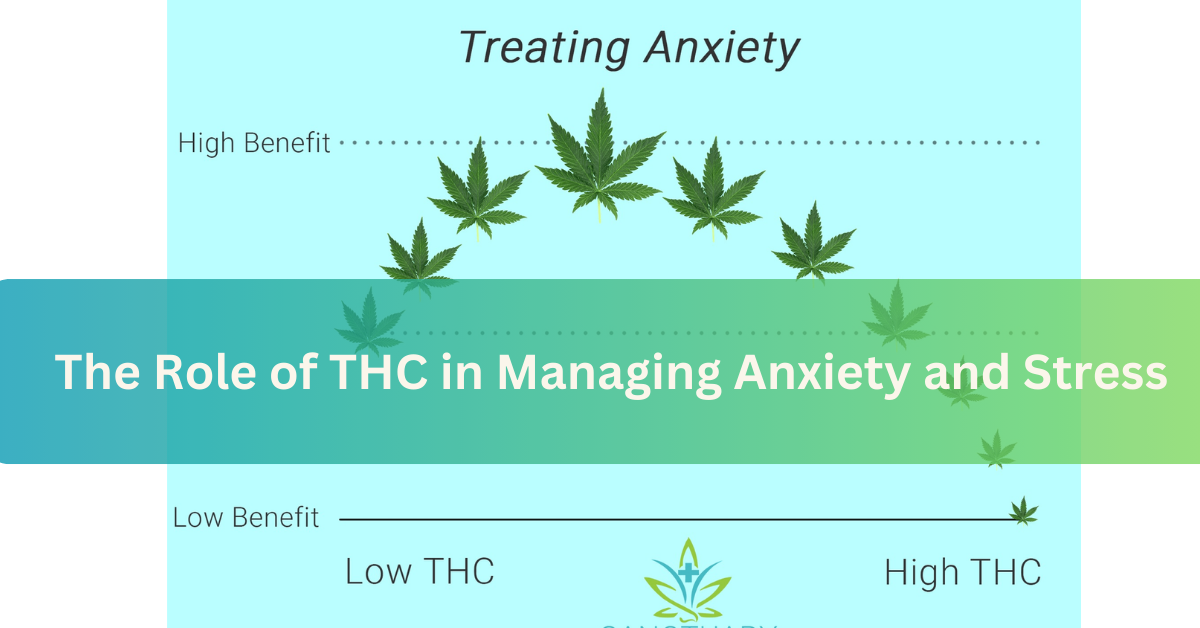The Role of THC in Managing Anxiety and Stress
In today’s fast-paced world, anxiety and stress have become common companions in our daily lives. While there are numerous ways to manage these conditions, one unconventional method has been garnering attention:
the use of Tetrahydrocannabinol (THC), the principal psychoactive constituent in cannabis. This article seeks to unravel the complex relationship between THC Gummies and its potential in managing anxiety and stress, diving into the science behind it and the nuanced considerations it entails.
Understanding THC’s Impact on the Brain
The key to THC’s interaction with anxiety and stress lies in its effect on the brain. THC binds to cannabinoid receptors, particularly the CB1 receptors in the brain, which play a significant role in regulating mood and stress responses.
By activating these receptors, THC can produce feelings of euphoria and relaxation, potentially alleviating symptoms of anxiety and stress.
However, it’s not a one-size-fits-all solution. The impact of THC on anxiety and stress is highly dose-dependent. Low to moderate doses of THC may reduce anxiety, whereas higher doses might exacerbate it. This paradoxical effect means that the therapeutic window for using THC to manage anxiety and stress is narrow and requires careful titration.
THC vs. Conventional Anxiety Treatments
Comparing THC to traditional anxiety treatments like SSRIs (Selective Serotonin Reuptake Inhibitors) and benzodiazepines,
THC offers a different mechanism of action. While conventional treatments typically work by altering neurotransmitter levels over time, THC provides a more immediate effect. However, this immediate effect also comes with variability in individual responses, a factor less prevalent in traditional medications.
The Role of Terpenes and Strains
The effect of THC on anxiety and stress is not solely due to the compound itself but also the terpenes found in different strains of cannabis.
Terpenes like myrcene and limonene have been suggested to have their own stress-reducing properties, which may enhance the therapeutic effects of THC. As such, the choice of cannabis strain can be as crucial as the decision to use THC.
Navigating the Risks and Challenges
While THC has potential in managing anxiety and stress, it’s not without risks. The psychoactive effects can be a double-edged sword, potentially leading to increased anxiety and paranoia, particularly in individuals with a predisposition to mental health disorders.
Additionally, the legal status of THC varies widely, which can limit its accessibility and use.
The Future of Research and Application
The current body of research on THC’s role in anxiety and stress management is still growing. Future studies, particularly those focusing on long-term effects, dosage optimization, and the impact of different strains, will be crucial in understanding how THC can be effectively and safely used for anxiety and stress relief.
Conclusion
THC presents a complex but promising avenue for managing anxiety and stress. Its efficacy is influenced by factors such as dosage, individual biology, and the specific cannabis strain used. While it offers an alternative to traditional treatments, it also requires a nuanced understanding and cautious approach.
As research continues to unfold, THC could potentially be harnessed as a valuable tool in the arsenal against the ever-prevalent challenges of anxiety and stress in modern life.









